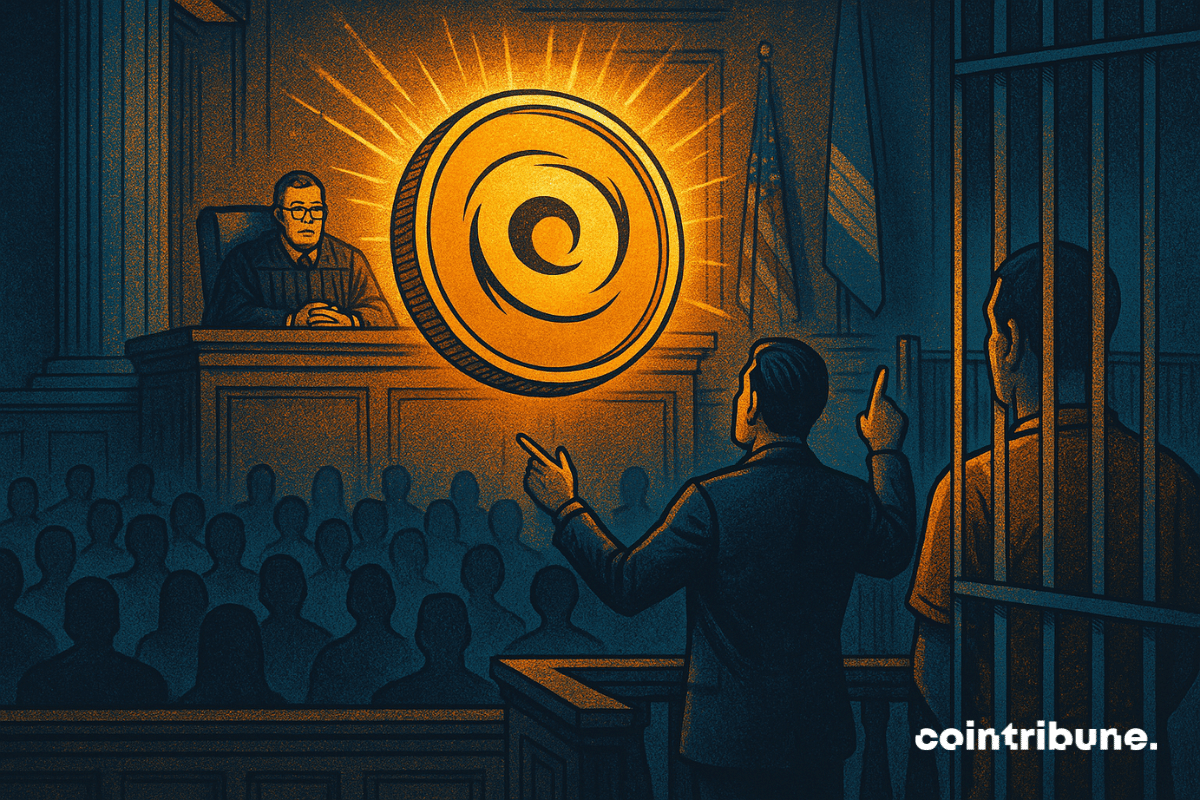When justice sees red, Ethereum opens the checkbook: $500,000 to save a coder accused of laundering whiter than white... even without a machine.
Tornado Cash (TORN)
A jury in Manhattan has found Tornado Cash co-founder Roman Storm guilty of operating an unlicensed money transmission business, while deadlocking on more serious charges of money laundering and sanctions violations tied to the North Korean hacker group Lazarus.
For a time, Tornado Cash was the ugly duckling of the blockchain. Accused of obscuring the trail of several billion dollars in dubious funds, the famous crypto mixer found itself on the U.S. Treasury's blacklist. But surprise on March 21: the axe fell... the other way around. The U.S. government simply lifted the sanctions against this protocol. A plot twist? Maybe. A signal of change? Definitely.
The Lazarus Group, a hacker collective affiliated with North Korea, continues its illegal activities by exploiting crypto. Recently, a transaction of 400 ETH, worth approximately 750,000 dollars, was identified on Tornado Cash, a platform known for anonymizing blockchain transactions. At the same time, the group has launched a new malware campaign targeting developers, confirming its evolution towards increasingly sophisticated attacks.
Once is not a habit, the French government once again shows its blatant distrust towards bitcoin.
The crypto universe remains a legal battleground where technology and law clash mercilessly. Alexey Pertsev, the emblematic figure of the Tornado Cash mixing protocol, has just reached a key milestone: released under electronic surveillance after eighteen months of detention, he is preparing his appeal. A mixed victory. For while the Dutch jails are opening slightly, the Russian developer remains chained to an electronic bracelet, a symbol of freedom under control. His case, much more than a simple judicial fact, embodies the burning tensions between decentralized innovation and legal responsibility.
A federal court in Texas has just overturned the sanctions imposed against the crypto mixing protocol, Tornado Cash. This decision marks a turning point in the regulation of privacy technologies and could redefine the authorities' approach to decentralized protocols.
A crypto developer sentenced to 5 years in prison for creating Tornado Cash and enabling the laundering of $1.2 billion!
Already criticized for its high level of centralization, Ethereum is disappointing many by censoring several transactions not validated by the OFAC.
The brilliant bitcoiner and entrepreneur Balaji Srinivasan has just published a scathing critique of the American state in its handling of the FTX case. According to him, the SBF case reveals the immense level of corruption within the establishment.









